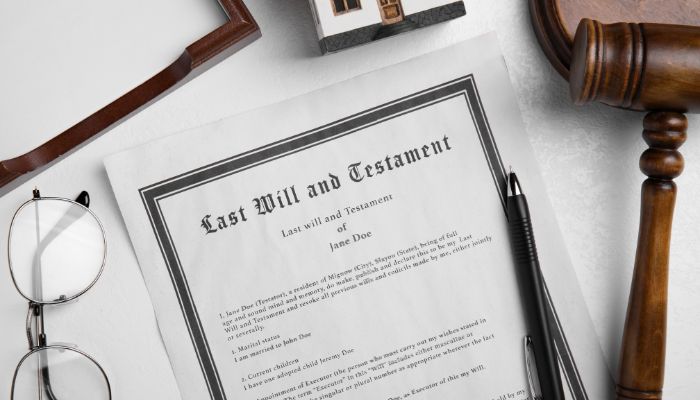
Legal Heir Certificate in India: Process, Documents, Format & Online Application Guide
A complete guide to obtaining a legal heir certificate in India—learn the process, documents required, fee details, and how to apply online or offline for property, bank, or pension claims.

Introduction: What is a Legal Heir Certificate?
A legal heir certificate is an official document issued by the government that identifies the rightful successors of a deceased person. It is essential for claiming rights to the deceased’s assets such as property, pension, bank accounts, insurance, and more.
- Used for: Property transfer, pension claims, insurance settlements, bank account closure.
- Issued by: Local Taluk Office, District Civil Court, or Municipal Corporation depending on the state.
- Verification Role: Confirms relationship between the deceased and the legal heirs.
If you’re wondering how to get legal heir certificate, this guide provides a step-by-step explanation—online and offline—with complete format, document list, and application tips.
Who Can Apply for a Legal Heir Certificate in India?
According to Indian law, the following individuals are generally eligible to apply for a legal heir certificate:
- Spouse of the deceased
- Sons and daughters (including adopted)
- Parents
- Siblings (in case the deceased is unmarried)
In certain situations, legal heirs can also include extended family members depending on state-specific laws. If you are claiming property or financial benefits, authorities will require this certificate to validate your claim.
When Do You Need a Legal Heir Certificate?
A legal heir certificate in India is used in various legal and financial transactions:
- Property Transfer: For transferring immovable property title from deceased to heir(s).
- Bank Account Closure: To release funds or fixed deposits from the deceased’s bank account.
- Pension Claim: To obtain pension benefits of a deceased government or private employee.
- Insurance Claims: Required by many insurers to release the insured amount.
- Employment Benefits: For terminal dues or job-related settlements (especially for government employees).
This document holds significant value in legal procedures related to the estate of a deceased person.
Difference Between Legal Heir Certificate and Succession Certificate
Many people confuse the two, but they serve different legal purposes:
- Legal Heir Certificate: Used to establish the relationship and for basic claims (property, pension, etc.). Issued by revenue authorities.
- Succession Certificate: Required for movable assets like securities, bonds, shares, and debts. Issued by civil courts.
- Legal Cost: Legal heir certificate is low-cost, while succession certificate requires court fees and legal representation.
For most everyday needs, especially involving government offices, banks, and property records, a legal heir certificate for property transfer is sufficient.
How to Apply for Legal Heir Certificate in India
Applying for a legal heir certificate can be done either through the local revenue office (Tehsildar or Taluk office) or through online state government portals (in supported states). Here’s a breakdown of both methods:
Offline Application Process
- Visit the nearest Tehsildar or Taluk office in your jurisdiction.
- Collect and fill the legal heir certificate application form.
- Attach all required documents including ID proof, death certificate, and address proof.
- Submit the form with an affidavit and passport-sized photos.
- Receive an acknowledgment and tracking number.
- Verification may be done by local revenue officers before issuing the certificate.
Online Application Process
States like Tamil Nadu, Andhra Pradesh, Karnataka, and Delhi offer online application facilities. Here’s how:
- Visit the respective state’s e-district or revenue services portal.
- Register and log in using Aadhaar or mobile OTP verification.
- Upload scanned documents and fill out the application digitally.
- Submit the application and pay fees (if applicable).
- Track the status and legal heir certificate download PDF once approved.
If you’re wondering how to apply for legal heir certificate in India and want convenience, check if your state allows e-filing.
Documents Required for Legal Heir Certificate
To complete the application, the following legal heir certificate documents required list must be fulfilled:
- Death certificate of the deceased (original + copy)
- ID proof of the applicant (Aadhaar, PAN, Voter ID)
- Ration card or family identity card
- Address proof (utility bill, rent agreement, etc.)
- Affidavit on stamp paper stating your relationship with the deceased
- Self-declaration or no-objection from other heirs (if needed)
- Photographs of the applicant
Ensure all documents are valid and up to date. Incomplete submissions often lead to rejection or delays.
Legal Heir Certificate Format
The typical legal heir certificate format includes:
- Name and address of the deceased
- Date of death and death certificate number
- List of surviving family members with relationship
- Declaration of heirs verified by local authority
- Signature and stamp of issuing authority (Tehsildar or Sub-Divisional Magistrate)
If you’re filing digitally, most states auto-generate a legal heir certificate PDF download once it’s approved.
Legal Heir Certificate for Property, Bank, and Pension
Use cases vary but all require legal heir proof:
- Property Transfer: For mutation of land or house in government records.
- Bank Account Closure: Required to access fixed deposits or balances.
- Pension Claims: Government employees’ family pension needs heir certification.
- Insurance Settlements: Most insurers require this to settle post-death claims.
- Vehicle Ownership: If the deceased owned vehicles, RTO also may require heir certificate.
Always retain multiple certified copies of your certificate to use with different institutions.
Where to Get Legal Heir Certificate Online – State Portals
Below are some popular state-wise portals that allow legal heir certificate online applications:
- Tamil Nadu: tnesevai.tn.gov.in
- Andhra Pradesh: ap.meeseva.gov.in
- Telangana: ts.meeseva.telangana.gov.in
- Karnataka: nadakacheri.karnataka.gov.in
- Delhi: edistrict.delhigovt.nic.in
- Maharashtra: aaplesarkar.mahaonline.gov.in
These platforms allow you to download legal heir certificate, pay fees, and track status easily.
Legal Heir Certificate Fees and Charges
Good news: applying for a legal heir certificate in India is usually low-cost or free. However, nominal charges may apply depending on your state:
- Application Fee: ₹2 to ₹20 (depending on the state or municipality)
- Stamp Paper for Affidavit: ₹10 to ₹100 (state-wise variation)
- Courier/Postage Charges: If delivery is via mail
- Online Portal Fee (If Applicable): Up to ₹50 for e-filing
Ensure you request an official receipt when paying any fee. Avoid middlemen or agents who charge unverified amounts.
Affidavit Format for Legal Heir Certificate
In many cases, applicants must submit a notarized affidavit as proof of relationship with the deceased. Here’s what the legal heir certificate affidavit format typically includes:
- Applicant’s name and address
- Full name and date of death of the deceased
- Declaration of all legal heirs
- Statement of relationship between deceased and applicant
- Signature of applicant with passport-sized photo
- Notarized seal and signature from a gazetted officer or notary
This affidavit should be printed on non-judicial stamp paper. It’s a key requirement for many legal heir certificate application forms across India.
Verification Process and Processing Timeline
Once you’ve submitted your application, the following steps occur:
- Local Verification: Village officer, revenue inspector, or municipal staff may visit your residence
- Cross-Verification of Documents: Submitted papers are verified with government records
- Public Notice (Optional): In some states, a notice is published inviting objections
- Issuance: If no dispute arises, certificate is issued digitally or physically
Timeline: The entire process usually takes 7 to 21 working days depending on jurisdiction and backlog.
Legal Heir Certificate PDF Download – When and How?
If you’ve applied online, the final certificate is available in digital format. Here’s how to access your legal heir certificate PDF download:
- Log in to your respective state e-services portal
- Go to “My Applications” or “Certificate Status”
- Once approved, click the “Download” or “Print Certificate” button
- Save it as PDF or take a printout
Keep both soft and hard copies handy for use in banks, property offices, or court matters.
Steps to Obtain Legal Heir Certificate – Recap
Here’s a quick checklist of the steps to obtain legal heir certificate in India:
- Gather death certificate and ID proofs
- Prepare affidavit and family relationship details
- Visit Tehsildar office or apply online via state portal
- Submit the form with required documents
- Undergo verification and wait for approval
- Download or collect the issued certificate
Need support during any of these steps? A legal expert or advocate can speed up the process and reduce chances of rejection.
Top Use Cases of Legal Heir Certificate

Once you receive your legal heir certificate, you can use it in the following scenarios:
- Property Transfer: Submit to the revenue department or sub-registrar for name change in property records.
- Bank Account Closure: Present it to release or transfer funds from the deceased’s bank accounts.
- Pension Benefits: Required by central and state governments for family pension processing.
- Insurance Claims: Essential for claiming maturity or accidental death policy payouts.
- Employment Dues: Transfer of employment-related dues (gratuity, PF, etc.) in case of deceased employees.
In short, it’s a legal gatekeeper for inheriting rights from a deceased individual.
Legal Tips for Heir Certificate Applicants
To ensure a smooth process and avoid rejection or delay, follow these practical tips:
- Verify Documents: Double-check all document copies—spelling errors or mismatches can delay approval.
- Use Correct Affidavit Format: Include all legal heirs; failure to do so can lead to disputes.
- Keep Originals Handy: Especially during local verification visits.
- Track Application: Use application ID from online portals to avoid missed updates.
- Consult an Advocate: If there are multiple heirs or disputes, it’s best to involve legal experts early on.
These steps protect you from delays, resubmissions, and legal complications later.
Common Issues While Applying for Legal Heir Certificate
Applicants often face delays due to these frequent issues:
- Disputes Among Heirs: Family objections or legal disagreements can pause issuance.
- Incorrect or Fake Documents: Any forgery will lead to cancellation and legal action.
- Incomplete Affidavit: If it lacks full names, signatures, or official notary attestation.
- Wrong Office Selection: Submitting at the wrong district/taluk jurisdiction.
Prevention is better than cure. Consult a legal expert before initiating a complex application.
Need Help Applying? Connect with Our Experts Across Gujarat
Advocate Ace connects you with experienced property and estate lawyers in cities near you. Whether you’re filing online or in-person, we help draft affidavits, collect documents, and file applications properly.
- Legal Heir Lawyers in Ahmedabad
- Property Certificate Help in Vadodara
- Heirship Claim Services in Surat
- Inheritance Law Experts in Rajkot
- Legal Paperwork in Jamnagar
- Government Legal Help in Valsad
- Family Law Lawyers in Vapi
- Succession and Property Rights in Anand
Whether it’s for legal heir certificate for bank account or pension claim, our team ensures accuracy, speed, and peace of mind.
FAQs – Legal Heir Certificate in India
How to get a legal heir certificate in India?
Visit the local Taluk or Tehsildar office with required documents, or apply via the respective state’s online portal (like Tamil Nadu’s TNeGA, Delhi’s eDistrict, etc.). Submit your application, undergo verification, and collect the certificate once approved.
What documents are needed for a legal heir certificate?
Death certificate, ID/address proof of the applicant, affidavit stating relationship, ration card, and details of all surviving heirs. In some cases, NOC from other heirs may also be needed.
What is the legal heir certificate used for?
It is used for property transfer, pension claims, bank account access, insurance claims, vehicle ownership, and more after the death of a family member.
Can I download legal heir certificate online?
Yes, in states like Tamil Nadu, AP, Telangana, Karnataka, and Delhi. Log in to the e-governance portal, go to “My Applications,” and click “Download Certificate.”
What is the difference between a legal heir certificate and a succession certificate?
A legal heir certificate is issued by revenue authorities for general claims, while a succession certificate is issued by a civil court and used primarily to claim movable assets like securities and debts.
Conclusion: Secure Your Family’s Legal Rights with a Legal Heir Certificate
Getting a legal heir certificate in India is essential for anyone handling a deceased person’s estate. From property inheritance and pension claims to bank accounts and insurance settlements, it validates your right to inherit legally.
- Apply early: Especially if you plan to manage estate, finances, or legal dues.
- Ensure accuracy: Proper documents and affidavit formatting are key.
- Use it confidently: For court filings, registrations, and estate management.
Don’t wait until legal issues arise. Prepare now, consult a legal expert, and protect your family’s interests.
Need Expert Help with Legal Heir Certificate?
Advocate Ace offers professional legal drafting, document verification, affidavit preparation, and application filing services for legal heir certificates. From property disputes to pension benefits—we’ve got your back.
Book Your Consultation Now

